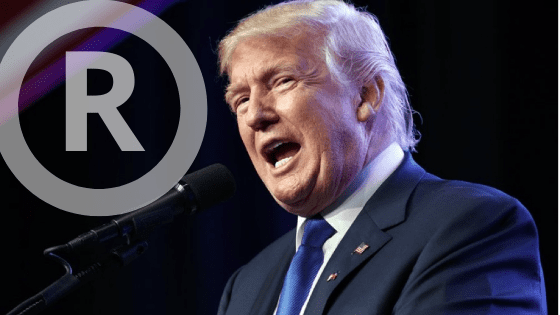Donald Trump: How a Presidential Campaign Helps (and Maybe Hurts) a Licensed Brand
Stephen Reily
July 11, 2016

As election year 2016 rolls on, and Donald Trump the presidential candidate delivers a new surprise every day, it’s worth taking some time to consider Donald Trump the brand and the lessons his campaign offers us for brand management and licensing.
It may turn out that running for President was the best move Trump could have made for his brand, but winning would be the worst.
Running for President is Good for a Brand

Donald Trump has built a remarkably resilient brand, strongest in his family’s core business: real estate and now golf. And that core business is more like licensing than many people realize. For many years, Trump’s own primary investment in real estate deals has been his name, and regional developers have been happy to give up equity in their projects for the luxury branding and oversights that the Trump organization delivers. Trump’s three children now manage this licensing business, which is more like a family empire than a personal brand (it’s called “Trump” and not “Donald Trump”), and it is likely to survive any political disaster – even a long and endless string of mistakes. It has done so already.
Extending the Trump brand beyond real estate has failed more often than it has succeeded. The long list of Trump licensing deals that have come and gone include steaks and vodka, an airline, an online university, a travel website, customized vitamins, and a bike race. The deals that remain in the marketplace include wine, men’s clothing and furniture.
What can Donald Trump the brand teach us about licensing? The primary lesson is one I have shared before: a strong brand can withstand licensing failures better than most brand managers think. I have never seen any evidence that a licensing deal that didn’t work out has damaged the core business of the licensed brand, and Donald Trump’s current success (in which he has, in effect, “licensed” his brand to the presidential campaign) almost suggests the opposite. Caution may not turn out to be the best way to license a strong brand.
In many ways, Donald Trump’s candidacy has helped strengthen Donald Trump the brand. His real estate sales are up and the BBC has even estimated that the Trump empire has seen revenue increase by $190 million since he entered the race. As many Republican stalwarts recognize (and regret), there is evidence that Donald Trump the candidate may just be an extension of Donald Trump the businessman, more focused on what is good for his empire than his country.
Where Trump the Politician Won’t Help Trump the Brand
Trump’s brash arrogance as billionaire brand-owner may appeal to the average American, but Trump’s arrogance as a candidate, and his freely spouted opinions offending just about everyone you can offend, have made his brand polarizing as it never was before. No brand is for everyone, but being a brand that many people don’t like is very different from being a brand that many people hate.
If Trump were elected, his brand and business will suffer. Aside from conflict-of-interest issues that (even if he ignored them) would dog the administration of a businessman engaged in commerce across the country as President, the people who don’t like him will have more reason than ever to harm that ongoing business.
There are already boycotts threatened against his properties, and conventions are moving away from Trump-branded locations. But these small efforts are nothing compared to the target he would become if elected. Imagine if you were a pacifist or the mother of wounded veteran (or just an ardent Democrat) and were asked to stay in a “George W. Bush Hotel” at the height of the Iraq war. Now imagine that you were a feminist, or liberal Jew, or Muslim and you were asked to stay in a Trump hotel for work? Trump’s complaints that you were simply thin-skinned would not go far to answer your complaints, and half the country would suddenly have an incentive to hurt his companies. This is not a position any businessman wants to be in.
But maybe being President was never Donald Trump’s goal. Maybe he realized that a campaign, wherever it led, would be good for his brand value – a brand value that had grown and never suffered even after striking countless failed licensing deals for new products and services. Maybe the goal that Donald Trump the obsessive money-maker least wants is the White House. This famous control freak will now have to wait to see if voters will force that bad business decision on him.

